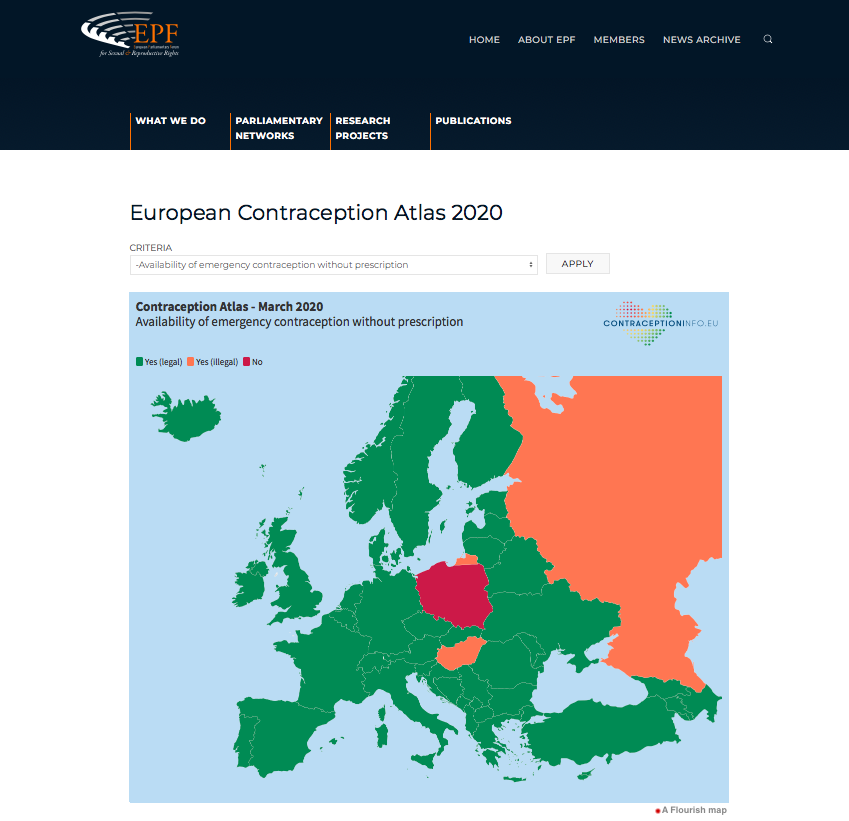European Contraception Policy Atlas 2020
 If you missed the on-line launch of the Atlas today, YouTube is here to help: https://youtu.be/5sT5mKS-UtI
If you missed the on-line launch of the Atlas today, YouTube is here to help: https://youtu.be/5sT5mKS-UtI  If you missed the on-line launch of the Atlas today, YouTube is here to help: https://youtu.be/5sT5mKS-UtI
If you missed the on-line launch of the Atlas today, YouTube is here to help: https://youtu.be/5sT5mKS-UtI September 2020. The European Journal of Contraception and Reproductive Health Care highlights and provides open access to this paper from its latest issue: Qualitative findings about stigma as a barrier to contraception use: the case of Emergency Hormonal Contraception in Britain and implications for future contraceptive interventions Rachael Eastham, Christine Milligan & Mark Limmer. See…
On Saturday, May 31, 2014, ECEC and ICEC hosted the event, Women’s BMI as a factor in EC failure: An open discussion on the data available to date, at the Lisboa Congress Center in Lisbon, Portugal. The goal of this event was to present the data, facilitate a transparent information-sharing process, and engage in a scientific…
A recent UK study examined how the use of ulipristal acetate (UPA), levonorgestrel (LNG), and the copper-intrauterine device for emergency contraception changed following the introduction of new UK Faculty of Sexual & Reproductive Healthcare (FSRH) guidelines. The new guidelines recommend that for emergency contraception, health professionals should discuss individual needs and inform women of the…
March 2025. Emergency contraceptive (EC) pills with a low dose of mifepristone (10 to 25 mg), have been available in a few countries for many years, including Armenia, Russia, China, Moldova, Ukraine and Vietnam. In 2023, however, the Ministry of Health of the Russian Federation approved a list of drugs and active ingredients that are…
April 2022. Emergency contraception (EC) was available in Ukraine before the invasion by the Russian Federation, but due to the conflict supply chains have been disrupted. EC is an essential reproductive health supply. The only contraceptive that can prevent pregnancy after rape, EC is part of the first line care that must be provided to…
April 2024. We are thrilled to announce that the International Pharmaceutical Federation (FIP) has endorsed the consensus statement published last September by the European Society of Contraception and Reproductive Health (ESC), the International Federation of Gynecology and Obstetrics (FIGO), the International Planned Parenthood Federation (IPPF), and the European Consortium for Emergency Contraception. The consensus statement recommends…
Menú
This website uses cookies so that we can provide you with the best user experience possible. Cookie information is stored in your browser and performs functions such as recognising you when you return to our website and helping our team to understand which sections of the website you find most interesting and useful.
Strictly Necessary Cookie should be enabled at all times so that we can save your preferences for cookie settings.
If you disable this cookie, we will not be able to save your preferences. This means that every time you visit this website you will need to enable or disable cookies again.
This website uses Google Analytics to collect anonymous information such as the number of visitors to the site, and the most popular pages.
Keeping this cookie enabled helps us to improve our website.
Please enable Strictly Necessary Cookies first so that we can save your preferences!
More information about our Cookie Policy